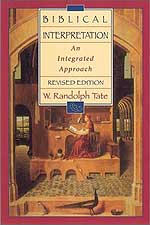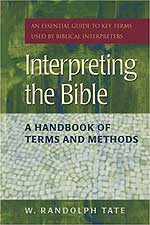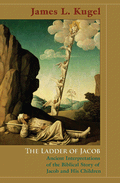The debate surrounding the translation and interpretation of Psalm 2:12 continues. For some context, you can see my previous post here, while John Hobbins has some further (good) reflections on why it is inappropriate to capitalize “Son” in this verse (assuming you understand the phrase as “kiss the son”), even if you understand further christological significance in the passage.
Turning our attention back to the actual text critical problem with this passage, Chris Heard has posted on the difficulty of translatingÂ × ×©×§×•Ö¾×‘×¨ (“kiss the sonâ€? or the like) in Psalm 2:12. He notes a recent article in German by Liudger Sabottka on this passage in question in Biblica 87 (2006), entitled, “Ps 2,12: ‘Küsst den Sohn!’?â€? [“Ps 2:12: ‘Kiss the son!’?â€?]. Sabottka suggests taking the verb × ×©×§ as an example of × ×©×§ II, “arm or equip” with a privative meaning, e.g., “disarm.” He further takes בר as “pure, sincere,” and offers the translation, “Rüstet ehrlich ab!â€? or as Chris translates it, “Really/truly/honestly disarm [yourselves]!â€?
While this interpretation is possible (are not all things possible?!), I’m not convinced it is the best. While the privative use of the Piel stem is acknowledged by all Hebrew grammarians, it is not very common. According to GKC it is limited to denominative verbs (i.e., verbs that derive from nouns) and occurs only a handful of times (see 52 h). Jenni similarly notes this usage in his Das Hebraische Pi‘el (p. 273), though he eschews the specialized privative function and understands it as a general factitive-resultative use (and Waltke and O’Connor follow Jenni in this regard, see 24.4f). While this understanding × ×©×§ in Ps 2:12 is certainly possible, I am not sure that such a rare usage is warranted. Furthermore, in all of the examples of the privative function noted, none of them are ever modified by an adverb, let alone an adjective. To say the least, I remain unconvinced by Sabottka’s proposal.
While many proposed interpretations of the phrase × ×©×§×•Ö¾×‘×¨ focus on understanding בר bar, perhaps a better way forward is through an examination of the verb × ×©×§ nashaq. The verb itself occurs 35x in the Hebrew Bible (this includes supposed homonyms), including the passage under scrutiny.
Here is a breakdown of how the verb is used:
- The verb most often occurs with an expressed personal object. Most frequently (21x) the object is marked by the preposition lamed: “A kissed ל-B� (Qal: Gen 27:26,27; 29:11; 48:10; 50:1; Exod 4:27; 18:7; 2Sam 14:33; 2Sam 15:5; 2Sam 19:40; 20:9; 1Kgs 19:18; 19:20; Job 31:27; Prov 7:13; Ruth 1:9, 14; Piel: Gen 29:13; 31:28; 32:1; 45:15).
- Four times a pronominal suffix marks the personal object: “A kissed him/her/me/you� (all Qal: Gen 33:4; 1Sam 10:1; Song 1:2; 8:1).
- There are two instances where the verb takes an impersonal object; in both of these cases the object is not marked by the preposition lamed, but simply precedes the verb (Qal: Hos 13:2, “people kissing calves�; Prov 24:26, “he kisses the lips�).
- The object of reciprocal kisses are not marked with a preposition lamed; in these two cases the object may either follow (Qal 1Sam 20:41) or precede the verb (Ps 85:11 [Eng v. 10]; many conjecture this form should be pointed as a Niphal).
The remaining five instances are more problematic:
- Three times it appears in military contexts connected with קשת qeshet, “bowâ€?: Ps 78:9 “equipped with bowsâ€?; 1Chron 12:2 “equipped with bowâ€?; 2Chron 17:17 “armed/equipped with bow.â€? In these instances most lexicons hypothesize a different root, e.g., × ×©×§ II “handle, be equipped withâ€? (BDB), “to join one to another,â€? i.e., to “take one’s place in rankâ€? (HALOT). This homonym is understood to be a denominative from the noun nesheq, “equipment, weaponsâ€? and is perhaps related to the Arabic nasaqa, “to line up, to place in order.â€?
- The remaining two instances are connected to × ×©×§ II by HALOT: Gen 41:40 (Qal) “Order themselvesâ€?? and Ezek 3:13 (Hifil) “the sound of the wings touching one another.â€? I personally would relate the occurrence in Ezek 3:13 to × ×©×§ I “kissâ€? and understand it as an idiom, lit., “and the sound of the wings of the living creatures kissing each to its sisterâ€? i.e., “brushing against one another.â€? This example is parallel to the construction found in 1Sam 20:41 “each his neighbourâ€?; we also use the English verb “kissâ€? in the same manner.
Based on this examination of the verb usage, some parameters on how best to understand this passage may be set:
- When the verb clearly means “kiss�, it never takes the preposition ב bet to mark the object of the kiss. This seems to rule out the common emendation “kiss his feet� with the bet. (BHS also notes the emendation with a lamed, though that emendation requires more exegetical gymnastics to explain where the lamed came from).
- There are no instances where × ×©×§ nashaq is modified by an adverb, and it never occurs without an expressed object. This makes the proposed interpretations, “kiss sincerelyâ€? or “pay homage in good faithâ€? or the NET “Give sincere homageâ€? unlikely.
Thus, the understanding “kiss bar,â€? with בר bar being the object of the verbal action is the most plausible interpretation based on the clear cases of the usage of × ×©×§ nashaq in the Hebrew Bible. This still leaves at least two options: the more popular “kiss [the] sonâ€? and the more obscure “kiss [the] ground/land.â€?
I am still unconvinced that the first alternative is the best option. While you do find some contexts where you have an Aramaic word thrown in among Hebrew (the parade example cited is Prov 31:2-3); it is difficult to see it in this context when the Hebrew word for son (בן ben) is used a few verses earlier. Furthermore, while Aramaic would perhaps be an appropriate address to foreign powers, no other parts of the address are Aramaic. In addition – and this is the clincher in my opinion — when × ×©×§ nashaq takes a personal object (like “sonâ€?) it is always marked by the preposition lamed, and in Ps 2:12 it is not.
In working through the data, I have become more convinced that the second interpretation, “kiss the field/ground,â€? is the most plausible. First, it doesn’t resort to head spinning emendations (not that I have anything against emendations). Second, it doesn’t appeal to an odd usage of an Aramaic word in an otherwise entirely Hebrew passage. Third, it fits with the regular usage of the verb, since elsewhere when × ×©×§ nashaq is used with an impersonal object, it does not mark the object with a preposition lamed. Fourth — and this is something that Staffan Olofsson notes in his article — there are ANE parallels to this exact phrase as an act of reverence for a king or a god in the Akkadian expression nasaqu gaggara “kiss the ground/fieldâ€? (see his “The Crux Interpretum in Ps 2:12,â€? in SJOT; I would like to thank my friend Staffan for sending me a copy of this article since I don’t have easy access to SJOT). Finally, this interpretation fits the context of the passage.
The one weakness of this interpretation is that the meaning of בר bar as “field� is not very popular and only occurs in a few other places in the Old Testament (Job 39:4 and the Aramaic parts of Daniel, 2:38, 4:9, 12, 18, 20 (2x), 22, 29). That being said, it is a viable usage and makes good sense in this passage.
This, then, is my final word on Psalm 2:12 (at least for now!).

 In the past when I taught the introductory hermeneutics course at Taylor, I used
In the past when I taught the introductory hermeneutics course at Taylor, I used 
 James Kugel’s new book, The Ladder of Jacob: Ancient Interpretations of the Biblical Story of Jacob and His Children (Princeton University Press, 2006;
James Kugel’s new book, The Ladder of Jacob: Ancient Interpretations of the Biblical Story of Jacob and His Children (Princeton University Press, 2006;